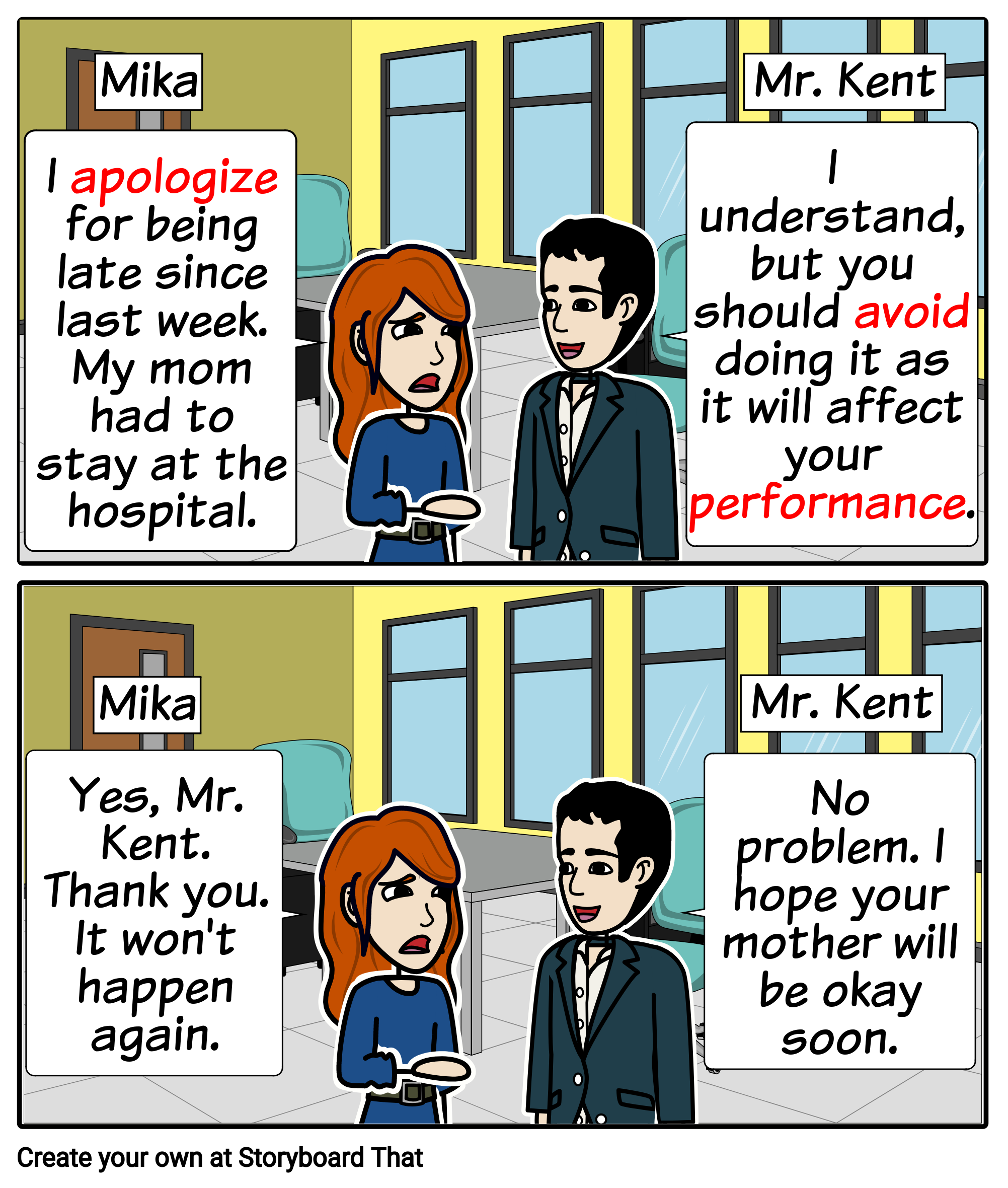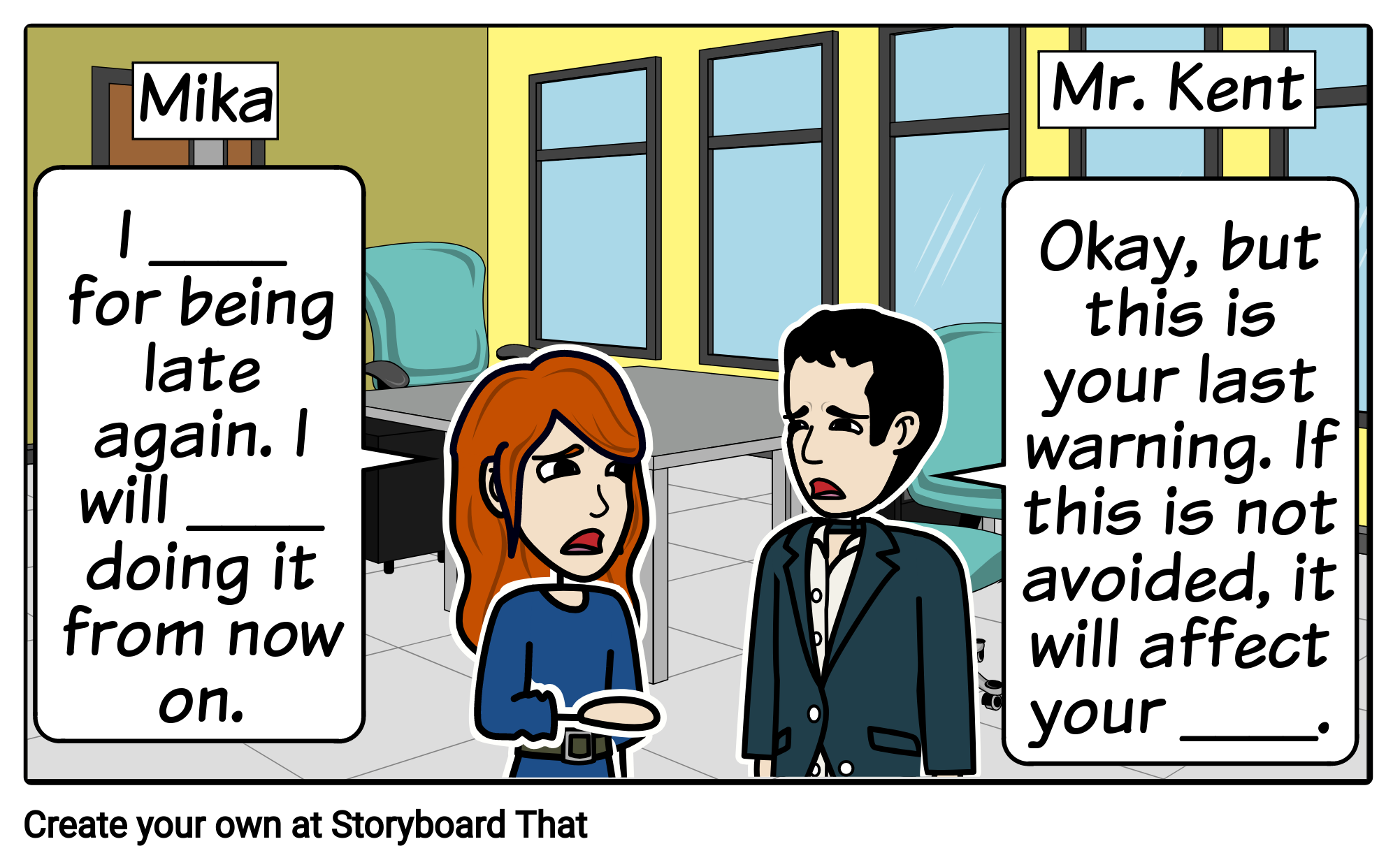LESSON GOAL
In this material, you will learn new expressions to use when apologizing at work. You will also learn new vocabulary.
この教材では、謝罪をするときに使う表現と単語を学びます。
PART A_1
Please answer the questions in complete sentences.
PART A_2
| 1. | Have you ever apologized to someone from your work/school? |
| Answer: | |
| 2. | Has someone ever apologized to you at work/school? |
| Answer: | 3. | Name one or two mistakes you did at work/school recently. |
| Answer: |
PART B_1
Let’s read the dialogue. I will be Mika and you will be Mr. Kent. After reading it once, we’ll switch roles.
PART B_2

PART C_1
Let’s read each word and their meaning aloud. Please repeat after me.
PART C_2
| 1. | apologize |
| [verb] to say sorry to someone after making a mistake | |
| 2. |
avoid |
| [verb] to stop or to stay away from doing something | |
| 3. | performance |
| [noun] the action of how well a person is in accomplishing tasks |
PART D_1
Choose the correct answer based on the dialogue you read.
PART D_2
| 1. | Why is Mika apologizing to Mr. Kent? |
| a. | She’s always sleeping at work. |
| b. | She’s always absent. |
| c. | She’s always late since last week. |
| 2. | Who was in the hospital since last week? |
| a. | Mika’s mother |
| b. | Mika’s father |
| c. | Mika’s friend |
| 3. | Why should Mika avoid being late? |
| a. | She might lose her job. |
| b. | It will affect her performance at work. |
| c. | Her workmates will be mad at her. |
PART E_1
Read the dialogue and fill in the blanks with the correct vocabulary words.
PART E_2

REVIEW AND FEEDBACK
Now, let us review the things that you learned in this lesson.
ではこのレッスンで学んだことを振り返りましょう。
(Please give a short feedback on how your student did on your class.)
| Grammar 文法 |
Pronunciation 発音 | Vocabulary 単語 |
Comprehension 理解 |
|
|---|---|---|---|---|
 GOOD GOOD |
文法の誤りはほとんどなく、完全な文章で話すことができる | ほとんどの単語をはっきりと正しく発音することができる | 習った表現を適切に使うことができる | 文章を理解し、質問に正しく答えることができる |
 FAIR |
文法の誤りはあるが、完全な文章で話すことができる | 発音の練習が必要な言葉がいくつかある | たまにミスはあるが、習った表現を適切に使うことができる | 文章を完全に理解するのは難しく、質問に正しく答えられないときもある |
 POOR |
文章で話すのは難しく、単語だけで話すことができる | 発音の練習が必要である | 習った単語と表現を少しだけ使うことができる | 文章を理解するのは難しく、質問に答えるのは難しい |
レッスン教材に関するアンケートのお願い
レッスン教材の改善・拡充を図ることを目的とし、アンケートを実施しております。
以下のURLからアンケートにお答えいただき、 ご意見・ご要望をお聞かせください。
アンケートはこちら